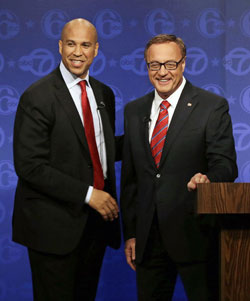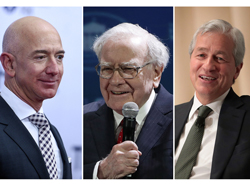The Supreme Court’s judges made the decision on Nov. 25th to lift the COVID-19 restrictions on N.Y. houses of worship. It was in a 5-4 ruling and was put in place by Governor Andrew Cuomo.
The request came from the Roman Catholic Diocese of Brooklyn and two Orthodox Jewish synagogues. The request also claimed that the free exercise of religion from the First Amendment was being violated in the executive order.
Randall S. Abate, J.D., a Professor of Political Science, said that the Supreme Court ruled lifting the restrictions of N.Y.’s places of worship were necessary because the restrictions infringed the constitutionally protected free exercise of religion protected by the First Amendment.
“I disagree with the decision because we are now in the most dangerous phase of this pandemic and there are reasonable alternatives to conducting worship, for example online, that do not involve assembling in houses of worship,” said Abate.
He continued, “When protecting public health requires the cooperation of all citizens, exceptions should only be made at the discretion of the state based on public health data. All constitutional rights are subject to time, place, and manner restrictions.”
Abate then discussed how the First Amendment’s protection of religious liberty has two components: The Establishment Clause, which concerns the need to maintain separation between church and state, and the Free Exercise Clause, which protects one’s freedom to express and practice their religious beliefs. He then said that this case involves the Free Exercise Clause.
Abate said the proper test in addressing free exercise challenges requires the Court to consider whether regulation at issue is neutral and of general applicability. He said that the restriction here is neutral, therefore the Court should have upheld the restrictions.
He said, “The decision was politically motivated and reflects the views of the new conservative majority on the Court. Justice Amy Coney Barrett’s vote swung the majority in this direction in contrast to the Court’s recent decisions on this issue that had reached the opposite outcome when Justice Ruth Bader Ginsburg was on the Court.”
Abate described his approach on protecting the free exercise of religion that has always been pursuing one’s religious beliefs cannot be used as a trump card to disrupt a state’s interest in maintaining public health, safety, and welfare.
“The irony is that Governor Cuomo, who imposed these restrictions, respects the importance of religious practice in society. Yet I believe that he struck the right balance with these restrictions,” said Abate.
Joseph Patten, Ph.D., Associate Professor of Political Science, also discussed how this case falls under the Free Exercise Clause which allows Americans to pursue their religion versus the right of the state to regulate it. He said that there have always been strong protections carved out with respect to the free exercise of religion, but there are limitations to that.
Patten also said that the original purpose of the law is not to enhance or prohibit.
“There is a lot of case law on this and the court has decided different ways on it because you are talking about the right of the state to pass laws, in this case it is COVID against the right of the individual to practice their religion. So, this goes to free exercise rights,” said Patten.
“This particular court is a conservative court and leans more toward protecting religious freedom than the stage right to pass laws,” Patten added. “It is kind of a limited ruling of a sense of making an exception for religious practices. It did not strike the sense to pass this law.”
Patten continued that this particular area has strong constitutional Free Exercise roots and there is a lot of case precedent that favors the right of an individual to practice their religion over the right of the state to enact laws that inhibit the practice.
Matt Filosa, a junior political science student, said that he does not agree with the Supreme Court ruling because there is a crisis that is underway in the country. “The constitution gives police powers to the states, and with emergency powers utilized by governors, they have authority to impose restrictions as long as it is not a blatant violation of the constitution,” he said. “Under the constitution, it is also a power of the states to promote the health and welfare of its citizens, this being a public health crisis deals with promoting the health of the public.”
Filosa also said that the restrictions on religious gatherings are the closest to rights in the constitution as opposed to limits on public gatherings. “I can’t say litigation won’t be attempted to challenge these restrictions, it’s very possible,” he said. “But I do not see a single case reversing all restrictions across the country, states are afforded broad power under the constitution.”
IMAGE TAKEN from CNN




